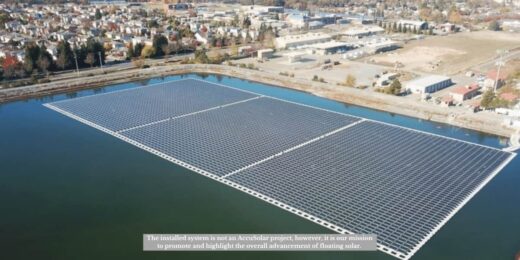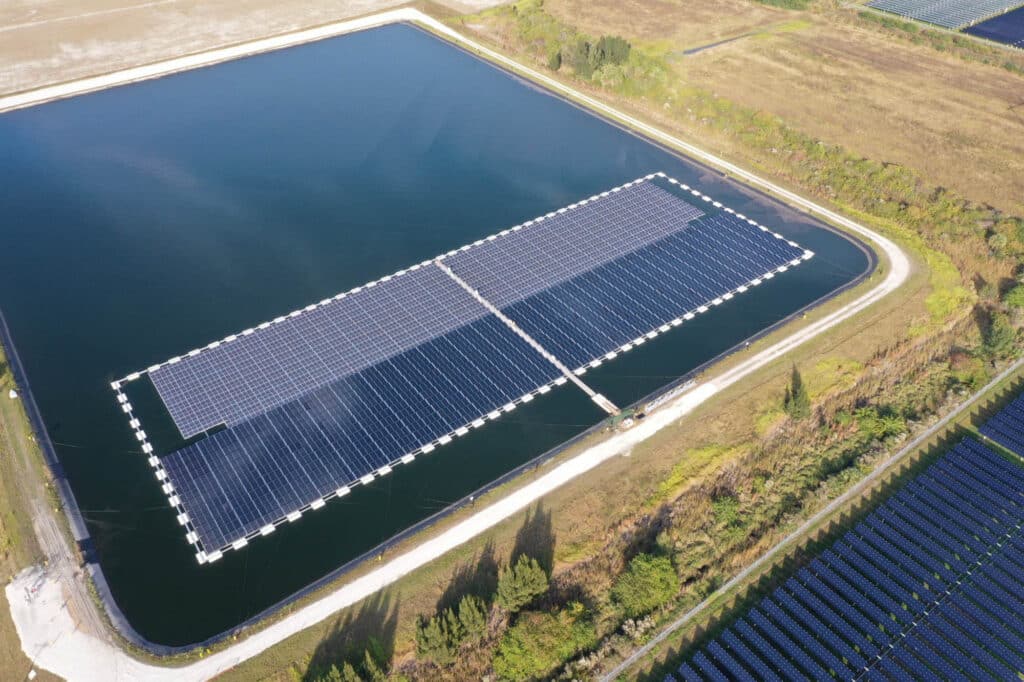In recent years, the clean energy revolution has taken a fascinating turn. Floating solar panels are no longer just an alternative energy source; they’re becoming a tool for conservation. These innovative platforms, blossoming across lakes and reservoirs, generate clean electricity while leaving precious land untouched. A new era dawns for sustainable development, where progress and a habitat conservation plan go hand-in-hand.
Floating Solar Panels and Habitat Conservation Plan
AccuSolar leadership brings over two decades of experience in the Floating Dock industry. By harnessing the top-level technology, build quality and expertise of AccuDock and applying it to a new industry, AccuSolar’s goal is to bring the power of solar at a reduced environmental impact. We are committed to providing top-level technology, build quality, and expertise, using our closed-cell foam-filled floatation and marine-grade aluminum frames with stainless steel connection hardware. In collaboration with various environmental agencies, we have proven that our product design does not harm local surroundings. Our commitment to sustainability is evident in our meticulously engineered floating platforms that integrate seamlessly into the environment.
Floating solar panels are a groundbreaking player in the pursuit of clean energy solutions. While they offer a promising path, responsible development demands a crucial step, comprehensive habitat conservation plans. These intricate blueprints, mandated by law, protect threatened species and their habitats. Each plan meticulously details how to minimize and mitigate the impact of these solar farms, ensuring progress doesn’t come at the cost of environmental destruction. It’s a delicate dance, but one that paves the way for a sustainable future.
Habitat Preservation: Balancing Clean Energy and Wildlife Protection
Incorporating floating solar installations into a habitat conservation plan represents a strategic partnership between clean energy and wildlife protection. The first step is a thorough environmental impact assessment. Researchers, akin to a team of eco-inspectors, meticulously examine potential risks to local wildlife and aquatic ecosystems. This involves a deep dive into assessing how the panels might affect water quality, disrupt migratory patterns, or modify habitats. Armed with this information, a customized mitigation plan is crafted. Adjustments in panel design and placement can steer clear of critical spawning grounds or floating bird nesting areas. Additionally, establishing buffer zones creates a safe haven for sensitive ecosystems, ensuring they remain undisturbed. This collaborative approach paves the way for clean energy generation that lends itself to habitat preservation.
Continuous monitoring and adaptive management form the cornerstone of a thriving habitat conservation plan. Through consistent data collection on environmental conditions and species health, conservationists and developers gain the insight needed to swiftly identify emerging issues. This proactive stance allows for timely adjustments in management practices, ensuring conservation efforts remain effective over time. This forward-thinking approach not only safeguards habitats but also strengthens our ability to adapt to a constantly changing environment.
Financial incentives and policy support are essential drivers for the seamless adoption of this integrated approach. Governments and environmental agencies hold the key, offering grants and programs for floating solar systems and the creation of resilient habitat conservation plans. Clear regulations and streamlined permitting processes create a smooth fusion of renewable energy and conservation goals. This vision fosters a future where both thrive, not just survive.
Final Thoughts
The integration of floating solar panels into habitat conservation plans presents a forward-looking solution to the intertwined challenges of renewable energy production and ecosystem preservation. By harnessing the synergies between these goals, we pave the way for sustainable development that honors and safeguards our natural world. Contact AccuSolar, a leader in U.S. designed and manufactured Floating Solar PV systems and explore how we can support your transition to solar energy!





